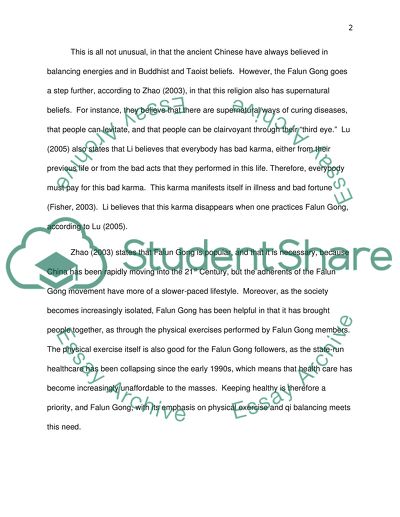Cite this document
(“Why does the Chinese Government publicly denounce Falun Gong Research Paper”, n.d.)
Why does the Chinese Government publicly denounce Falun Gong Research Paper. Retrieved from https://studentshare.org/religion-and-theology/1401890-why-does-the-chinese-government-publicly-denounce
Why does the Chinese Government publicly denounce Falun Gong Research Paper. Retrieved from https://studentshare.org/religion-and-theology/1401890-why-does-the-chinese-government-publicly-denounce
(Why Does the Chinese Government Publicly Denounce Falun Gong Research Paper)
Why Does the Chinese Government Publicly Denounce Falun Gong Research Paper. https://studentshare.org/religion-and-theology/1401890-why-does-the-chinese-government-publicly-denounce.
Why Does the Chinese Government Publicly Denounce Falun Gong Research Paper. https://studentshare.org/religion-and-theology/1401890-why-does-the-chinese-government-publicly-denounce.
“Why Does the Chinese Government Publicly Denounce Falun Gong Research Paper”, n.d. https://studentshare.org/religion-and-theology/1401890-why-does-the-chinese-government-publicly-denounce.


